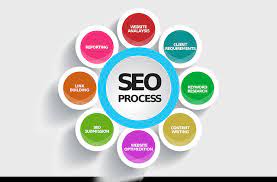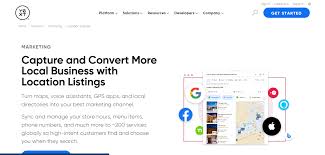The Importance of SEO Design for Your Website
Search Engine Optimization (SEO) is a crucial aspect of any website design. It involves optimizing your website to rank higher in search engine results pages, making it easier for users to find your site online. However, many website owners overlook the importance of incorporating SEO into their design process.
SEO design encompasses various elements that contribute to improving your site’s visibility and ranking on search engines. From keyword research and meta tags to mobile responsiveness and site speed, there are several factors to consider when designing a website with SEO in mind.
Benefits of SEO Design
Implementing SEO design principles can have a significant impact on your website’s performance and success. Here are some key benefits:
- Increased Visibility: By optimising your site for search engines, you increase the chances of appearing higher in search results, making it easier for users to discover your website.
- Enhanced User Experience: SEO design focuses on creating a user-friendly experience by improving site navigation, load times, and overall usability.
- Higher Conversion Rates: When users can easily find and navigate your site, they are more likely to engage with your content and convert into customers or leads.
- Long-Term Success: Investing in SEO design ensures that your website remains competitive and relevant in the ever-changing digital landscape.
Key Elements of SEO Design
To effectively incorporate SEO into your website design, consider the following key elements:
- Keyword Research: Identify relevant keywords related to your content and integrate them strategically throughout your site.
- Meta Tags: Optimise title tags, meta descriptions, and headers with targeted keywords to improve click-through rates.
- Mobile Responsiveness: Ensure your site is mobile-friendly to cater to the increasing number of users accessing the web on smartphones and tablets.
- Site Speed: Optimise loading times by compressing images, minifying code, and leveraging caching techniques.
In conclusion, incorporating SEO design principles into your website development process is essential for improving visibility, user experience, and overall performance. By focusing on key elements such as keyword research, meta tags, mobile responsiveness, and site speed, you can create a website that not only looks great but also ranks well in search engine results. Remember that SEO is an ongoing process that requires regular monitoring and updates to stay ahead of the competition.
Mastering SEO Design: Key Questions Answered for Enhancing Website Performance
- What is SEO design and why is it important for websites?
- How does keyword research contribute to SEO design?
- What are meta tags and how do they impact SEO design?
- Why is mobile responsiveness crucial for SEO design?
- How does site speed affect SEO performance in website design?
- What are the best practices for integrating SEO into web design?
- Is it necessary to hire an expert for implementing SEO design strategies?
- How can I measure the effectiveness of SEO design on my website?
What is SEO design and why is it important for websites?
SEO design refers to the practice of incorporating search engine optimization principles into the design and development of a website. It involves strategies and techniques aimed at improving a site’s visibility and ranking on search engine results pages. SEO design is crucial for websites because it helps them attract more organic traffic, increase visibility to potential users, and enhance user experience. By implementing SEO-friendly design elements such as keyword optimization, meta tags, mobile responsiveness, and fast loading times, websites can improve their chances of being discovered by search engines and ultimately reach a wider audience online. In essence, SEO design is essential for ensuring that websites are not only visually appealing but also easily accessible and discoverable by users searching for relevant content or services.
How does keyword research contribute to SEO design?
Keyword research plays a pivotal role in SEO design by guiding the strategic placement of relevant keywords throughout the website. By conducting thorough keyword research, website owners can identify the terms and phrases that their target audience is searching for online. Integrating these keywords into the website’s content, meta tags, headers, and URLs helps search engines understand the site’s relevance to specific search queries. This optimisation not only improves the site’s visibility in search engine results but also enhances user experience by delivering content that aligns with what users are actively seeking. In essence, keyword research forms the foundation of SEO design, shaping how content is structured and presented to effectively reach and engage the intended audience.
What are meta tags and how do they impact SEO design?
Meta tags are snippets of code that provide information about a web page’s content to search engines and website visitors. In terms of SEO design, meta tags play a crucial role in influencing how a page is indexed and displayed in search engine results. The two main meta tags that impact SEO design are the meta title and meta description. The meta title is the clickable headline that appears in search results, while the meta description provides a brief summary of the page’s content. By optimising these meta tags with relevant keywords and compelling information, website owners can improve their click-through rates and overall visibility on search engines. Therefore, crafting strategic meta tags is an essential aspect of SEO design to enhance a website’s performance and attract more organic traffic.
Why is mobile responsiveness crucial for SEO design?
Mobile responsiveness is crucial for SEO design because of the increasing number of users accessing websites on mobile devices. Search engines like Google prioritise mobile-friendly websites in their rankings, meaning that websites that are not optimised for mobile may be penalised in search results. With more people browsing the internet on smartphones and tablets, having a responsive design ensures that your website provides a seamless user experience across all devices. This not only improves user satisfaction but also signals to search engines that your site is user-friendly and deserving of higher visibility in search results. In today’s digital landscape, mobile responsiveness is a key factor in enhancing SEO performance and reaching a broader audience online.
How does site speed affect SEO performance in website design?
Site speed plays a crucial role in SEO performance within website design. Search engines like Google consider page loading speed as a key ranking factor, as it directly impacts user experience. A slow-loading website can lead to higher bounce rates, lower user engagement, and ultimately, a drop in search engine rankings. By ensuring that your website loads quickly and efficiently, you not only provide a better experience for visitors but also signal to search engines that your site is well-optimised and user-friendly. Optimising site speed through techniques such as image compression, minifying code, and leveraging browser caching can significantly improve SEO performance and contribute to better visibility in search results.
What are the best practices for integrating SEO into web design?
When it comes to integrating SEO into web design, following best practices is essential to ensure that your website ranks well in search engine results. Some key strategies include conducting thorough keyword research to target relevant terms, optimizing meta tags and headers with these keywords, ensuring mobile responsiveness for a seamless user experience across devices, and prioritizing site speed through image optimization and code efficiency. Additionally, creating high-quality, relevant content that incorporates targeted keywords naturally can further boost your site’s SEO performance. By implementing these best practices consistently throughout the web design process, you can enhance your website’s visibility and attract more organic traffic effectively.
Is it necessary to hire an expert for implementing SEO design strategies?
When it comes to implementing SEO design strategies, the question of whether it is necessary to hire an expert often arises. While some website owners may attempt to handle SEO themselves, hiring an expert can bring numerous benefits. SEO design is a complex and ever-evolving field that requires a deep understanding of search engine algorithms, keyword research, on-page optimization, and technical aspects of website development. An experienced SEO expert can provide valuable insights, implement best practices, and navigate the intricacies of SEO to help your website rank higher in search engine results. Their expertise can save you time and effort while ensuring that your SEO design strategies are effective and yield long-term results.
How can I measure the effectiveness of SEO design on my website?
Measuring the effectiveness of SEO design on your website is crucial to understanding the impact of your efforts and making informed decisions for future improvements. One common way to gauge the success of SEO design is through monitoring key performance indicators (KPIs) such as organic traffic, keyword rankings, and conversion rates. Analyse data from tools like Google Analytics to track changes in website traffic and user behaviour over time. Additionally, pay attention to metrics like bounce rate, time on page, and click-through rates to assess user engagement. Regularly reviewing these metrics will provide valuable insights into how well your SEO design strategies are performing and where adjustments may be needed to enhance your website’s visibility and performance in search engine results.




